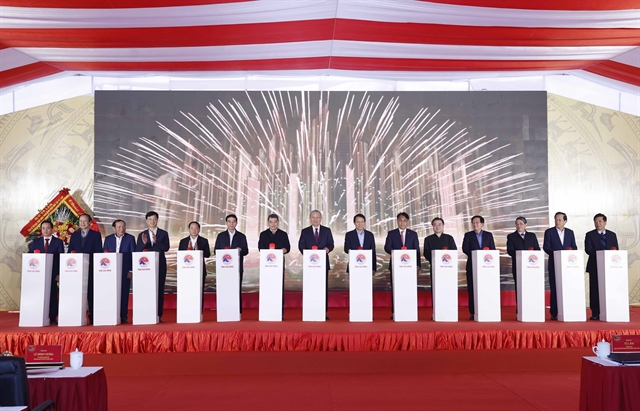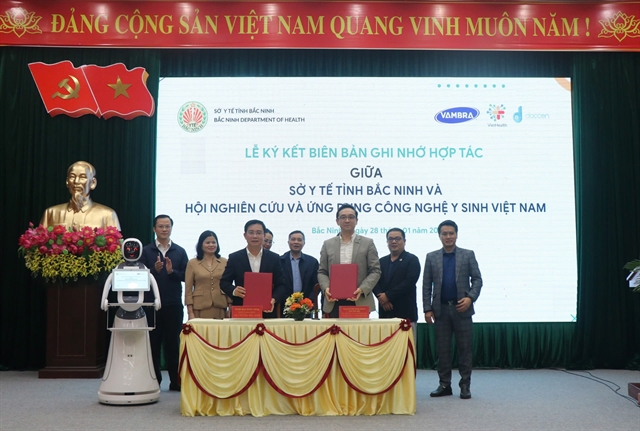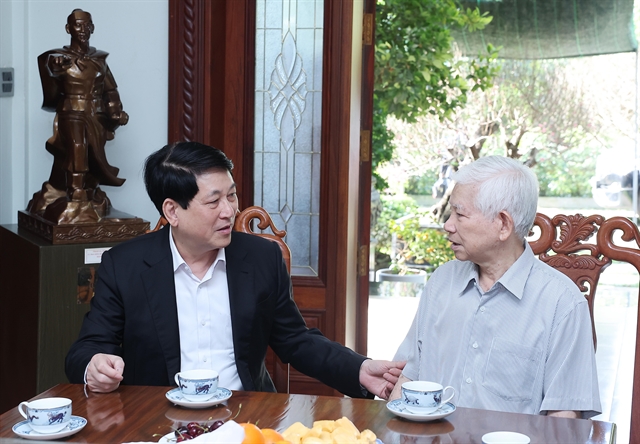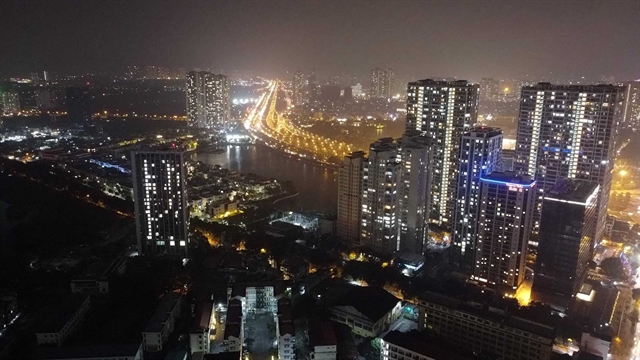 Economy
Economy

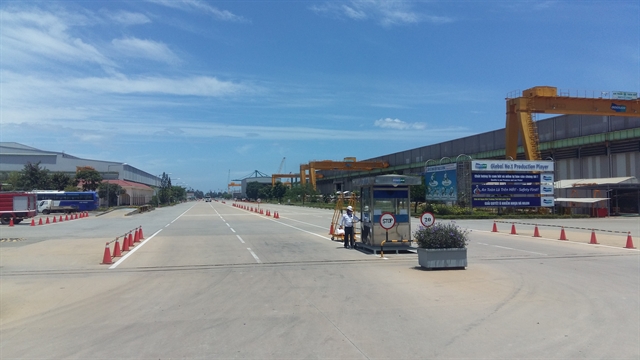 |
| An industrial park in the Dung Quất Economic Zone in central Quảng Ngãi Province. Quảng Ngãi and Hebei plan to boost cooperation and investment. VNS Photo Công Thành |
QUẢNG NGÃI — The central province agreed to promote investment and cooperation in trade, high-tech industries, steel, ceramics, power, and other industries with Hubei in China.
The proposals were suggested at a virtual meeting of the Quảng Ngãi Foreign Affairs Office and the Foreign Affairs Office of the Hubei provincial government earlier this week.
Director of Quảng Ngãi provincial foreign affairs department, Huỳnh Thị Phương Hoa said the two localities could invest and build hi-tech farms, as well as advanced seed production and management, livestock breeding and saplings production and research.
“The province has planned the Dung Quất EZ as a sustainable industrial centre in Việt Nam, as well as a national oil and gas centre. It can also help promote tourism on Lý Sơn Islands,” Hoa said.
Hoa also requested support from Hubei in technical assistance, technology transfer, organic and smart farming, seafood processing and aquaculture, and building distribution chains for One Commune-One Product (OCOP) and fruit products.
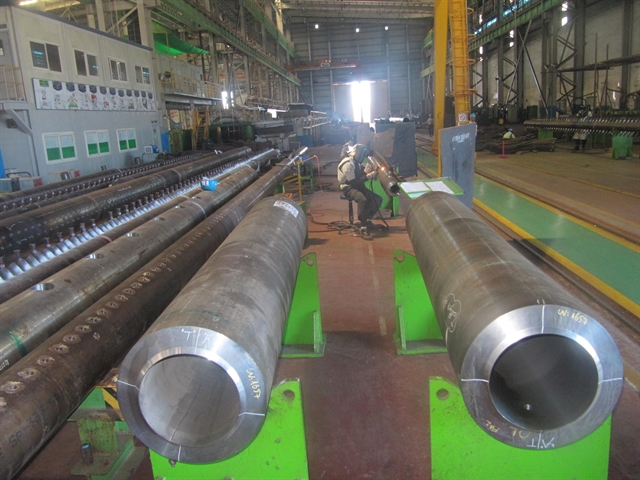 |
| A worker welds mechanical equipment at a factory in Dung Quất Economic Zone. Businesses from Hebei, China will explore investment opportunities in the province. VNS Photo Công Thành |
She said the province earned an export turnover of US$433 million from the Chinese market in 2022 including woodchips, cassava starch, leather bags, shoes, lenses for glasses, earphones and confectionery.
Meanwhile, the province imported cloth and sub-materials for garments and leather production, as well as equipment to produce earphones, materials for steel manufacturing, and packaging worth $423.4 million from China.
The province has attracted 15 FDI projects from China, including from mainland China and eight from Hong Kong, with a total value of $245.69 million. Xingdadong Textile Company was the only business from Hebei and poured $103 million into the Viet Nam-Singapore Industrial Park-Quang Ngai.
In the first half of 2023, businesses from the province imported $140 million from China.
Head of the Foreign Affairs Office of Hebei province, Liu Yuan said businesses in the province had built up cooperation and investment ties with 200 countries around the world, and a Chinese business (JA Solar company) from the province had invested in a photovoltaic production factory in the northern Bắc Giang Province, and a garment plant in Quảng Ngãi province-based Vietnam Singapore Industrial Park (VSIP).
She suggested that the two localities should build up a twin-city partnership in promoting economics, trade and culture in the future.
Hebei has various UNESCO-recognised world heritage sites including the Great Wall and other significant relics that could boost tourism between the cities and culture, according to Liu.
Liu Yuan called for Vietnamese tourists in the province to explore the beauty of landscapes and world heritage sites in Hebei.
Dong Biyou, Consul General of the Chinese Consulate-General in Đà Nẵng, said Quảng Ngãi and Hebei, China had potential investment advantages in textiles, manufacturing and industrial parks development.
Dong Biyou highly appreciated the investment from Chinese investors in Quảng Ngãi.
The open and cooperative policy would help strengthen friendship ties and the development of the two provinces, contributing to regional growth and increasing investment both ways.
Chang Xiao Ling, deputy head office of cooperation and foreign investment of Hebei, said businesses from Hebei invested $31.9 billion in foreign markets, of which $720 million was in Việt Nam.
She said the investment of Xingdadong Textile company was a successful example of typical cooperation between Hebei and Quảng Ngãi provinces.
Nguyễn Phạm Trọng Nghĩa, head of the investment management office of the Dung Quất EZ said the site had been calling for more investment in infrastructure, renewable energy, seaports and logistics with preferential policies.
Nguyễn Thị Nguyên, director of Thuyên Nguyên garment company in Quảng Ngãi shared that her company earned $10 million per year from exports to Asia, Europe and the US.
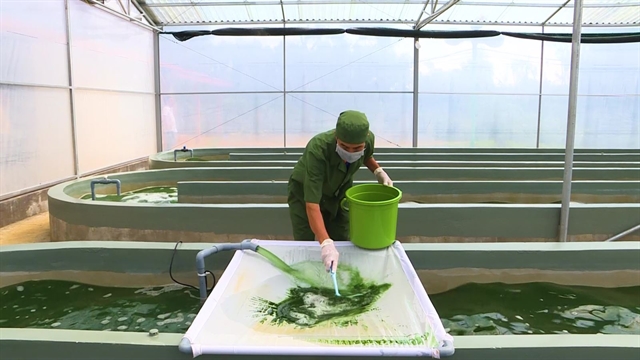 |
| An engineer at a hi-tech farm in Quảng Ngãi Province. Photo courtesy of Vạn Tường Co-operative |
“We exported 100,000 garment products per month, of which 70 per cent went to the Asian market, while Europe and the US collectively took a 30 per cent share,” she said.
“The company employed around 1,000 local labourers and imported materials from China, as well as used Chinese expertised supports and technical assistance,” she added.
A representative of the Quảng Ngãi-based sugar joint-stock company Hoàng Thị Ngọc Dung said the soya bean milk product of its Fami brand was designed specially for the Chinese market.
She said China was one of many potential export markets of the company, others being Japan, Korea, the US, Canada, Myanmar and New Zealand.
She said the company expectd to cooperate with partners from Hebei in the production of sugar, beer, mineral water, soya bean milk and confectionery.
According to the latest report from the Dung Quất EZ, 346 projects are currently in effect with nearly US$18 billion in investment capital, of which 58 foreign direct investment (FDI) projects are worth $1.84 billion. — VNS


